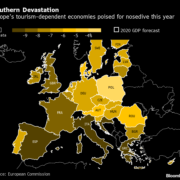Salaries
‘Economy should serve people, not the opposite’
According to Eurostat minimum wages in the EU member states range from 399 euros per month in Bulgaria to 2,387 euros per month in Luxembourg. As of this year, the minimum wage in Portugal is 760 euros per month. In the case of salaries, the country also remains at the tail end of average salaries in the EU, ranking 17th out of 22 member states.

Last year more than 55% of workers received wages of less than 1,000 euros per month, a percentage that rises to 65% in the case of young people under 30 years of age, according to data from the Ministry of Labour, Solidarity, and Social Security.

The INE (Instituto Nacional de Estatística) latest report from December shows that the total average monthly gross earnings per worker increased last year by 3,6% to 1,411 euros. Activities related to agriculture and fishing paid the lowest (an average of 933 euros/month), whereas jobs in electricity and gas paid substantially better (an average of 3,621 euros/month).

Although the average gross monthly salary rose, the rise hides a real drop of 4% if the effect of inflation (on average 7,6% in 2022) is taken into account, according to ECO (Economia Online). Only top managers and representatives of the legislative power had salary increases above inflation (by 9,6%). In highly qualified professions –doctors, teachers, and scientists – salaries only rose 1%.

Portuguese emigrants with higher qualifications – representing a quarter of all citizens who left the country in the last decade – are able to receive salaries three times more abroad, according to the study ‘Exodus of skills and academic mobility from Portugal to Europe’ from the Institute of Sociology of the University of Porto. ‘One of the reasons for emigrating is precisely the low salary level in our country’, points out João Teixeira Lopes, one of the authors.

This accounts not only for nurses but also for doctors. Medical specialists in Portugal are among the least paid in the EU and the country is located in the 6th lowest position, just above Greece, Slovakia, Poland, Lithuania, and Latvia. In Germany and Belgium they would easily earn three times more and in the Netherlands and Ireland even four times more.

Property prices in Portugal are skyrocketing whereas household incomes are left behind. Nowadays a Portuguese citizen needs the equivalent of 11,4 years of salary to be able to buy a 100 square meter house.
According to the OECD (Organisation for Economic Co-operation and Development), the country appears above the middle of the table, ahead of countries such as the US (4.1 years), Norway (7.8 years), and the UK (11 years) but behind Switzerland (12.6 years), Luxembourg (15.8 years) and New Zealand (18.7 years).

The CNJP ( National Committee on Justice and Peace) warns that the salary of many Portuguese workers does not allow them to overcome poverty. ’Economy, business, and work should serve people, not the opposite.
Enjoy your week aproveite a sua semana (pic Ptnews/Sapo)









